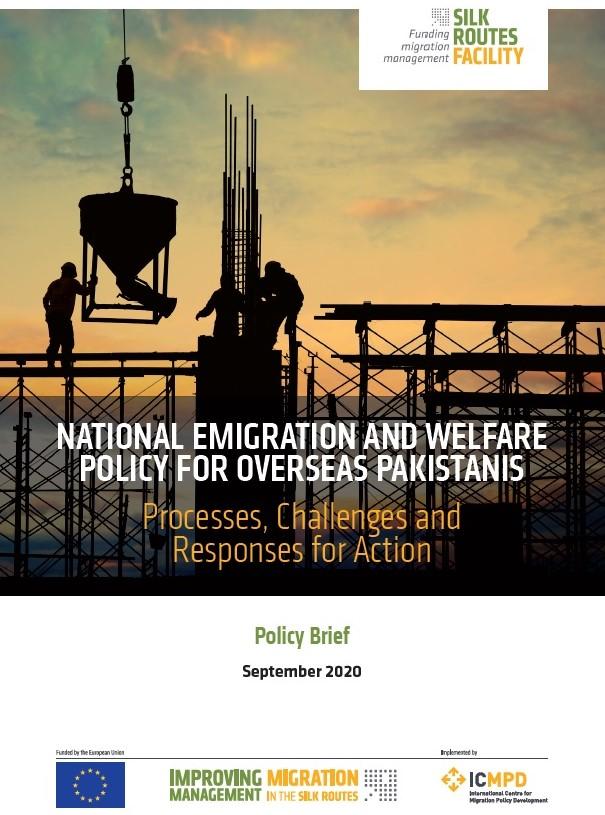The Silk Routes Facility supports the Ministry of Overseas Pakistanis and Human Resource Development (MOPHRD) in development of a National Emigration and Welfare Policy for Overseas Pakistanis.
National Emigration and Welfare Policy for Overseas Pakistani
The Scope of the Policy
This policy provides a tailored response to issues related to labour migration through three key areas: (a) promotion of safe, orderly and fair emigration, (b) protection and welfare of overseas Pakistanis and their families, and (c) engagement of Pakistani diaspora in development process and reintegration or return migrants – thereby covering all stages of labour migration.
Improving Migration Governance
In this regard, several policy responses have been highlighted to adequately manage and complement the labour migration framework in Pakistan. While due importance has been given to all policy responses, emphasis has been placed on improving the governance of migration in the country through a collaborative effort on part of all stakeholders – especially with regards to prevention of human trafficking and forced labour through responsible border management; protection of workers’ rights from fraudulent practices during the recruitment process; reduction of costs of recruitment with a focus to enhance development gains. In addition, pre-departure systems of instilling skills, knowledge and experience have been made a prominent focus.
In Pakistan, labour migration is a multidimensional phenomenon that requires effective cooperation among different stakeholders. The Policy promotes this cooperation and recognises MOPHRD’s leading role in coordination of the work of all relevant bodies, resulting in improved, integrated and efficient migration outcomes for overseas Pakistani workers and their families.
Addressing inequalities
The policy has included two major measures to make the emigration process inclusive in Pakistan. The low emigration provinces, such as Sindh and Baluchistan, will be encouraged and supported to attract more workers for overseas employment. Further, due attention will be given to women so that equal opportunities for emigration are offered across the country – thus managing and promoting gender mainstreaming in the labour migration management system.
The policy helps make the migration process for intending migrants more fair and equitable. It provides solutions related to legal frameworks on migration, recruitment practices, skills development, accessibility to other markets beyond the Gulf region, better protection of labour migrants, and the welfare of overseas Pakistanis and their families left behind.
Maximising the Development Potential of Migration
From a development perspective, the Policy recognises the integral role played by overseas Pakistanis and incentivises investment opportunities for them, including transfer of skills and technology. Further, it aims to increase inflows of remittances through formal banking channels. It also pays due attention to the reintegration needs of overseas Pakistanis and returning migrants and offers solutions in the form of reintegration services so that development efforts through entrepreneurship, for instance, can be encouraged.
The Policy enjoys full ownership of national institutions and MOPHRD aligns its actions with provisions of this policy, pending formal adoption.
